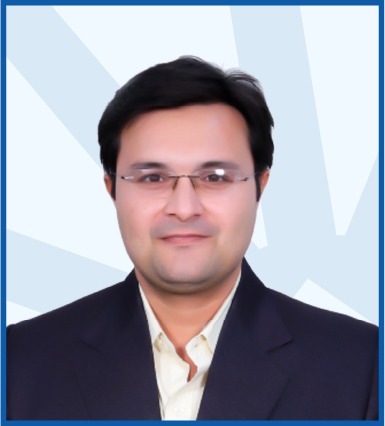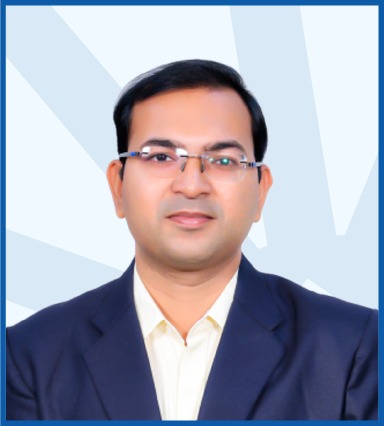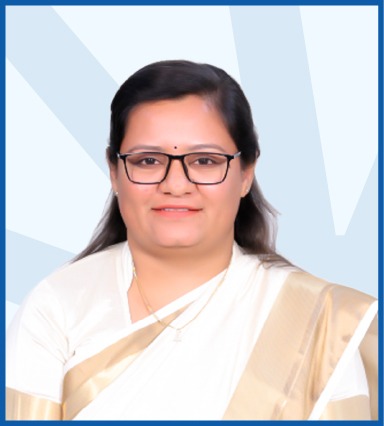Electrical Engineering – Power System
Introduction to course
Step into the realm of electrical power engineering excellence with our M.Tech. Program in Electrical Engineering – Power Systems. Tailored for ambitious engineers eager to revolutionize the energy sector, this program offers a transformative learning experience. Through immersive coursework, cutting-edge research opportunities, and collaborative projects, students gain expertise in power system planning, operation, and control.
Mission
- To deliver a comprehensive and forward-thinking curriculum that integrates fundamental electrical engineering principles with modern technologies, empowering students to thrive in a dynamic global environment.
- To nurture a culture of creativity, interdisciplinary research, and problem-solving to address real-world challenges in energy, automation, and emerging electrical technologies for societal benefit.
- To build robust collaborations with industry and communities, enabling practical learning, entrepreneurship, and the development of sustainable engineering solutions.
- To uphold the highest standards of ethics, integrity, and social responsibility, fostering transparency, accountability, and respect in all departmental pursuits.
Vision
To be a premier department in electrical engineering education and research,
fostering innovation and excellence to address societal and technological challenges
while contributing to sustainable development
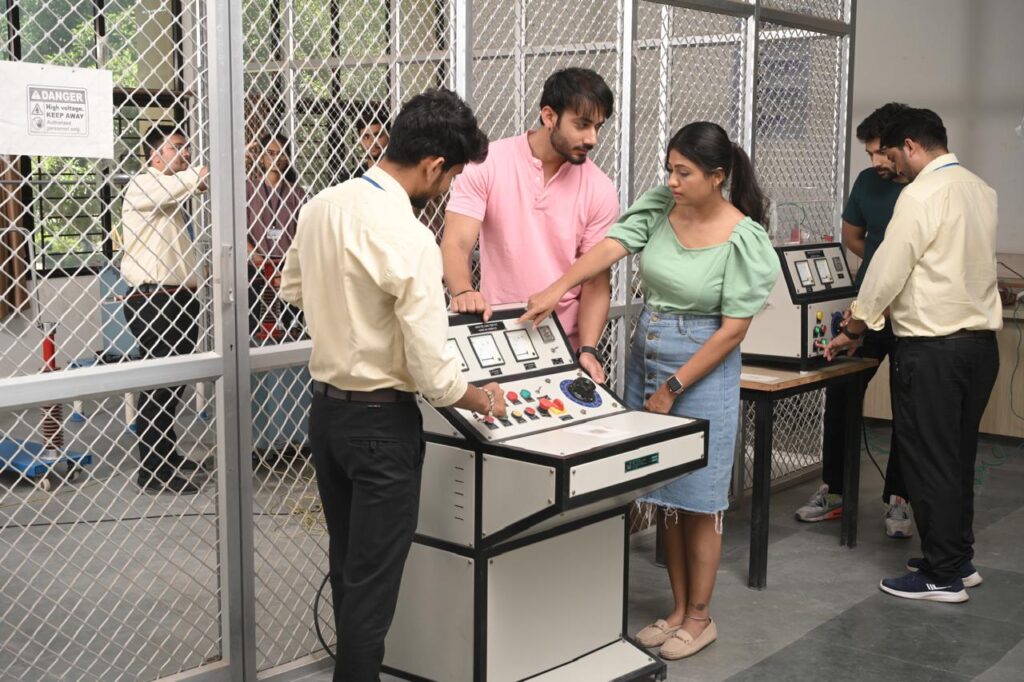
Course objective
- Develop a comprehensive understanding of electrical power systems, including generation, transmission, distribution, and utilization.
- Acquire proficiency in power system analysis techniques, including load flow, short-circuit analysis, and transient stability analysis.
- Explore advanced topics such as renewable energy integration, smart grid technologies, and power system optimization.
- Enhance critical thinking and problem-solving skills through hands-on projects, case studies, and real-world applications in power systems engineering.
- Prepare students for careers in power utilities, consulting firms, research institutions, and government agencies through rigorous academic training and practical experience.
Course outcome
- Develop innovative solutions to power engineering challenges, considering factors such as sustainability, efficiency, and grid integration of renewable energy sources.
- Communicate technical concepts and findings effectively through written reports, presentations, and visual representations.
- Collaborate in interdisciplinary teams to address real-world power engineering problems and propose practical solutions.
- Exhibit professionalism and ethical conduct in power engineering practice, adhering to industry best practices and standards.
- Engage in lifelong learning and professional development to stay abreast of emerging trends, technologies, and advancements in the field of electrical power engineering.
Admission procedure
Check Eligibility (Physics + Maths + Chemistry / Computer)
|
Board |
Category |
Theory Marks |
Theory + Practical Marks |
|---|---|---|---|
|
GSEB |
Open |
135 / 300 |
180 / 400 |
|
GSEB |
Reserve |
120 / 300 |
180 / 400 |
|
Other Boards |
Open |
108 / 240 |
135 / 300 |
|
Other Boards |
Reserve |
96 / 240 |
120 / 300 |
Required Documents
- SSC
- HSC
- GUJCET mark-sheet
- Leaving certificate (applicable for all)
- Income certificate
- Caste certificate, NCL (if applicable)
Curriculum
- Duration: 4 years
- Fees: Rs. 70,000
- Intake: 60
| GTU Code | Subject | Theory(Hrs) | Tutorial(Hrs) | Practical(Hrs) | Credits |
|---|---|---|---|---|---|
| 3110000 | Lorem Ipsum | 0 | 0 | 0 | 0 |
| 3110000 | Lorem Ipsum | 0 | 0 | 0 | 0 |
| 3110000 | Lorem Ipsum | 0 | 0 | 0 | 0 |
| 3110000 | Lorem Ipsum | 0 | 0 | 0 | 0 |
| 3110000 | Lorem Ipsum | 0 | 0 | 0 | 0 |
| GTU Code | Subject | Theory(Hrs) | Tutorial(Hrs) | Practical(Hrs) | Credits |
|---|---|---|---|---|---|
| 3110000 | Lorem Ipsum | 0 | 0 | 0 | 0 |
| 3110000 | Lorem Ipsum | 0 | 0 | 0 | 0 |
| 3110000 | Lorem Ipsum | 0 | 0 | 0 | 0 |
| 3110000 | Lorem Ipsum | 0 | 0 | 0 | 0 |
| 3110000 | Lorem Ipsum | 0 | 0 | 0 | 0 |
| GTU Code | Subject | Theory(Hrs) | Tutorial(Hrs) | Practical(Hrs) | Credits |
|---|---|---|---|---|---|
| 3110000 | Lorem Ipsum | 0 | 0 | 0 | 0 |
| 3110000 | Lorem Ipsum | 0 | 0 | 0 | 0 |
| 3110000 | Lorem Ipsum | 0 | 0 | 0 | 0 |
| 3110000 | Lorem Ipsum | 0 | 0 | 0 | 0 |
| 3110000 | Lorem Ipsum | 0 | 0 | 0 | 0 |
| GTU Code | Subject | Theory(Hrs) | Tutorial(Hrs) | Practical(Hrs) | Credits |
|---|---|---|---|---|---|
| 3110000 | Lorem Ipsum | 0 | 0 | 0 | 0 |
| 3110000 | Lorem Ipsum | 0 | 0 | 0 | 0 |
| 3110000 | Lorem Ipsum | 0 | 0 | 0 | 0 |
| 3110000 | Lorem Ipsum | 0 | 0 | 0 | 0 |
| 3110000 | Lorem Ipsum | 0 | 0 | 0 | 0 |
| GTU Code | Subject | Theory(Hrs) | Tutorial(Hrs) | Practical(Hrs) | Credits |
|---|---|---|---|---|---|
| 3110000 | Lorem Ipsum | 0 | 0 | 0 | 0 |
| 3110000 | Lorem Ipsum | 0 | 0 | 0 | 0 |
| 3110000 | Lorem Ipsum | 0 | 0 | 0 | 0 |
| 3110000 | Lorem Ipsum | 0 | 0 | 0 | 0 |
| 3110000 | Lorem Ipsum | 0 | 0 | 0 | 0 |
| GTU Code | Subject | Theory(Hrs) | Tutorial(Hrs) | Practical(Hrs) | Credits |
|---|---|---|---|---|---|
| 3110000 | Lorem Ipsum | 0 | 0 | 0 | 0 |
| 3110000 | Lorem Ipsum | 0 | 0 | 0 | 0 |
| 3110000 | Lorem Ipsum | 0 | 0 | 0 | 0 |
| 3110000 | Lorem Ipsum | 0 | 0 | 0 | 0 |
| 3110000 | Lorem Ipsum | 0 | 0 | 0 | 0 |
| GTU Code | Subject | Theory(Hrs) | Tutorial(Hrs) | Practical(Hrs) | Credits |
|---|---|---|---|---|---|
| 3110000 | Lorem Ipsum | 0 | 0 | 0 | 0 |
| 3110000 | Lorem Ipsum | 0 | 0 | 0 | 0 |
| 3110000 | Lorem Ipsum | 0 | 0 | 0 | 0 |
| 3110000 | Lorem Ipsum | 0 | 0 | 0 | 0 |
| 3110000 | Lorem Ipsum | 0 | 0 | 0 | 0 |
| GTU Code | Subject | Theory(Hrs) | Tutorial(Hrs) | Practical(Hrs) | Credits |
|---|---|---|---|---|---|
| 3110000 | Lorem Ipsum | 0 | 0 | 0 | 0 |
| 3110000 | Lorem Ipsum | 0 | 0 | 0 | 0 |
| 3110000 | Lorem Ipsum | 0 | 0 | 0 | 0 |
| 3110000 | Lorem Ipsum | 0 | 0 | 0 | 0 |
| 3110000 | Lorem Ipsum | 0 | 0 | 0 | 0 |
Faculty
Labs and facilities
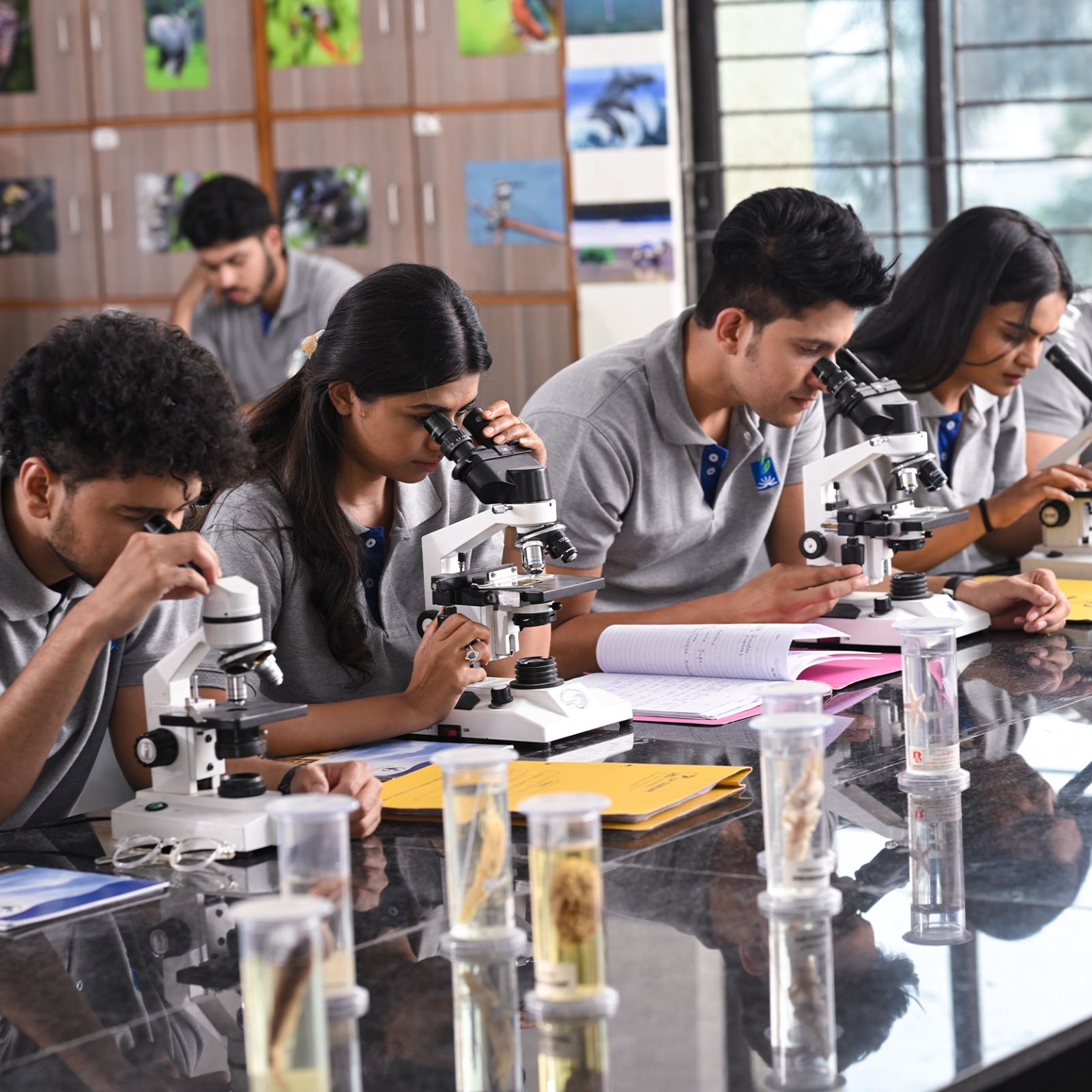

Photo gallery




